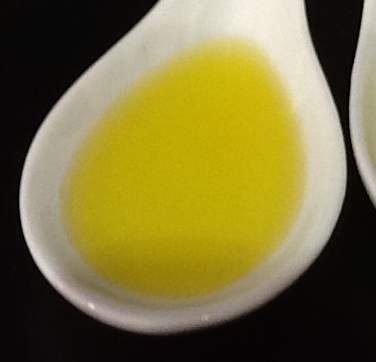Facts and myths about olive oil
Extra virgin olive oil is “fatter” than seed oils. Or heavier and therefore less digestible. Or even: olive oil that has passed its expiry date is bad for our health. These are just some of the many myths and misconceptions revolving around our precious olive juice. Here are some useful tips and interesting facts to shed some light on this topic

Everything you always wanted to know about olive oils without incurring into false claims and allegations. Here are some of the most common and colossal misconceptions.
Extra virgin olive oil is fatter than that extracted from seeds.
FALSE!
Every type of oil has the same fatty content and yields the same amount of calories, i.e. 9 Kcal per gram. Extra virgin olive oil is by no means richer than seed oil, but because it is tastier, less of it is needed.
Extra virgin olive oil is heavier and therefore less digestible than seed oils.
FALSE!
Extra virgin olive oil is in fact the most digestible of oils, has no side effects and can also be given to babies.
All vegetable fats are similar from a nutritional point of view.
FALSE!
Palm oil and coconut oil, often simply listed as “Vegetable fats” on the labels of the food we purchase, are full of those saturate fats that are more typical of animal fats and therefore have a lower nutritional level.
Seed oil is the best oil for frying.
FALSE!
Extra virgin olive oil is more resistant to high temperatures. Among the various types of seed oils available on the market, the best one for frying is that extracted from peanuts.
You should fry your food in a frying pan.
FALSE!
The typical frying pan, with its wide, low-rimmed shape, causes the oil to have a wide contact surface with the air, hence boosting its oxidation. It would be far better to use a narrow and deeper pot or container, such as that of a deep fryer.
After its expiry date, olive oil becomes harmful.
FALSE!
Olive oil does not harm our health, unless it has become rancid, but it loses some of its nutritional properties and may become less palatable.
Transparent glass bottles are the best containers for storing oil.
FALSE!
Dark glass bottles, preferably wrapped in foil, and aluminium, tinplate or stainless steel cans are much more suited, because they shield the oil from the light, in the presence of which the oil oxidises very rapidly.
Vinegar is the ideal detergent for the bottles and vessels used to store oil.
FALSE!
Detergents such as vinegar should always be avoided, because they leave a strong smell that oil immediately absorbs. Ideal cleaning agents are lye or any unscented detergent, diluted in warm water. It is important to rinse the containers well.
Oil can be stored in any environment.
FALSE!
Oil should be stored at a constant temperature (10 – 15°C), in the dark, far from detergents, salami, wine, vinegar or other products giving off scents that would then be absorbed by it. Oil for daily use must be kept well sealed, far from sources of heat and light.
Genuineness is synonymous with high quality.
FALSE!
Genuineness can be defined as the minimum level of quality required for extra virgin olive oil. The lower the values of certain chemical parameters are with respect to those set by law, the higher the quality of the oil. For instance, an extra virgin olive oil having free acidity equal to 0.2 is superior to one having a free acidity level of 0.8, but both are beneath the legal threshold.
The quality of extra virgin olive oil only depends on natural factors.
FALSE!
Anthropic factors too, including agricultural practices and how the olives are stored before being milled, have a significant impact on the features and traits of olive oil. One can therefore say that quality sees the light in the field and is preserved in the mill.
Every extra virgin oil has its own typicity.
FALSE!
A top-range extra virgin oil olio is only considered typical if it possesses certain organoleptic properties (flavour, scent and colour) that are typical of the olive variety employed and the region where it is cultivated. Typicity is the highest expression of quality, especially that of a given territory.
BITTERNESS is a negative trait for extra virgin olive oil.
FALSE!
Bitterness is a typical trait of oil made from olives that are still green or are just starting to change colour, and is considered a positive feature.
PIQUANCY is a negative trait for extra virgin olive oil.
FALSE!
The pungent, burning feeling in the throat (piquancy) is typical of oils produced in the early days of the harvesting season from green olives and is considered a positive feature.
ACIDITY can be detected by our taste buds.
FALSE!
Acidity does not affect the flavour of oil, but can only be quantified by chemically analyses determining the percentage of free oleic acid.
Photo by Luigi Caricato
To comment you have to register
If you're already registered you can click here to access your account
or click here to create a new account


Comment this news